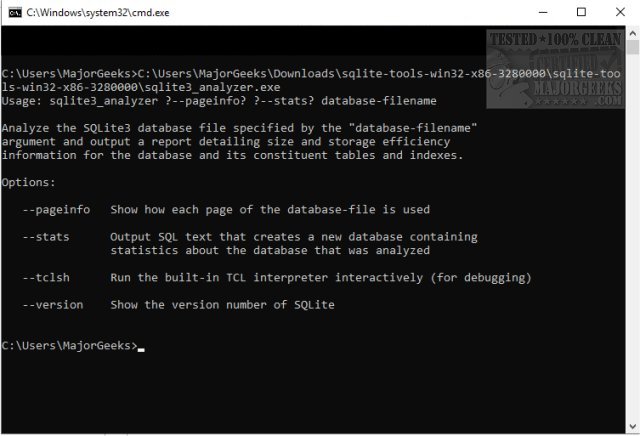SQLite has released version 3.49.2, introducing a simplified command-line option for managing SQLite databases, alongside a graphical user interface (GUI) version. SQLite is a self-contained, serverless, and zero-configuration SQL database engine that operates as an embedded system, meaning it does not require a separate server process. Instead, it interacts directly with regular disk files, allowing it to manage complex SQL databases—including multiple tables, indices, triggers, and views—all stored within a single file.
One of the key advantages of SQLite is its cross-platform database file format, which facilitates the easy transfer of databases across different architectures, whether they are 32-bit or 64-bit, or utilize big-endian or little-endian formats. This feature, along with its compact library size (under 600 KB with all features enabled), makes SQLite an ideal choice for many applications. It is recognized as a recommended storage format by the US Library of Congress, emphasizing its reliability and significance in data management.
SQLite’s performance is notable, as it often outpaces direct filesystem input/output operations, particularly when allocated sufficient memory. However, it remains efficient even in environments with limited resources. The development of SQLite is marked by rigorous testing protocols, as evidenced by an automated test suite that executes millions of test cases and ensures comprehensive branch coverage. This testing rigor helps maintain SQLite's reputation for reliability, with transactions adhering to ACID principles even in the event of power failures or system crashes.
While SQLite acknowledges that bugs can occur, it adopts a transparent approach by maintaining a list of known issues and providing detailed documentation of code changes. Unlike some commercial competitors, SQLite embraces an open dialogue about its bugs, fostering trust and reliability within its user community.
In summary, SQLite version 3.49.2 enhances user experience with new command-line features and continues to deliver a robust, efficient, and reliable SQL database solution suitable for various applications. Its compact nature and comprehensive testing make it a preferred choice for developers looking for a lightweight database engine. Moving forward, SQLite may further improve its performance and user accessibility, while continuing to uphold its commitment to transparency and reliability in software development
One of the key advantages of SQLite is its cross-platform database file format, which facilitates the easy transfer of databases across different architectures, whether they are 32-bit or 64-bit, or utilize big-endian or little-endian formats. This feature, along with its compact library size (under 600 KB with all features enabled), makes SQLite an ideal choice for many applications. It is recognized as a recommended storage format by the US Library of Congress, emphasizing its reliability and significance in data management.
SQLite’s performance is notable, as it often outpaces direct filesystem input/output operations, particularly when allocated sufficient memory. However, it remains efficient even in environments with limited resources. The development of SQLite is marked by rigorous testing protocols, as evidenced by an automated test suite that executes millions of test cases and ensures comprehensive branch coverage. This testing rigor helps maintain SQLite's reputation for reliability, with transactions adhering to ACID principles even in the event of power failures or system crashes.
While SQLite acknowledges that bugs can occur, it adopts a transparent approach by maintaining a list of known issues and providing detailed documentation of code changes. Unlike some commercial competitors, SQLite embraces an open dialogue about its bugs, fostering trust and reliability within its user community.
In summary, SQLite version 3.49.2 enhances user experience with new command-line features and continues to deliver a robust, efficient, and reliable SQL database solution suitable for various applications. Its compact nature and comprehensive testing make it a preferred choice for developers looking for a lightweight database engine. Moving forward, SQLite may further improve its performance and user accessibility, while continuing to uphold its commitment to transparency and reliability in software development
SQLite 3.49.2 released
SQLite enables a simplified command-line option for working with SQLite databases. GUI version is also available.


